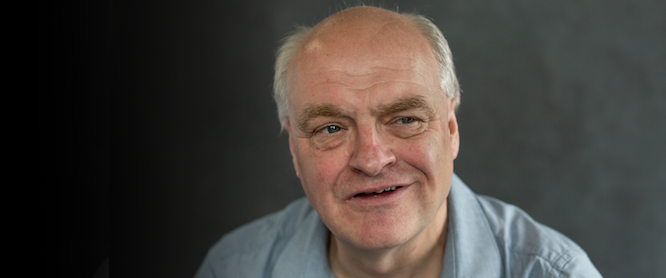By Mark McSherry — As prominent international fund manager James Anderson prepares to leave Edinburgh-based investment giant Baillie Gifford after almost 40 years, he has written about the “great minds that influenced his thinking” in the company’s publication Trust.
Anderson will become chairman of Swedish investment company Kinnevik AB.
Anderson has been joint manager of the Scottish Mortgage Investment Trust plc, Baillie Gifford’s flagship fund.
Scottish Mortgage is the UK’s biggest investment trust. It manages assets of about £17 billion and has a stock market value of around £15 billion, making it a constituent of the FTSE 100.
“For many years we have noticed in our portfolios that investment outcomes were dominated by a vanishingly small number of stocks,” wrote Anderson.
“Usually, on a five-year viewpoint, only three to five stocks (or their absence) mattered for shareholders.
“But while we observed this, we could not explain it.
“For that, we have had to seek the assistance of academics who have refused to be ‘trapped in preconceived ideas’.
“In turn, this has enabled us to move from anecdote to hypotheses about the underlying rhythm of stock markets and wealth creation.
“Chronologically the first of these was our interest in the extraordinary work of the Santa Fe Institute in general and of Brian Arthur, Geoffrey West and Ole Peters in particular.
“My view is that an understanding of Santa Fe’s work has been a common factor behind many of the most successful investors of the last 30 years in much the same way as Warren Buffett maintained in 1984 that ‘The Superinvestors of Graham-and-Doddsville’ shared a common heritage.
“Of course, the most deserved example of this is that of Bill Miller given his immense generosity in funding Santa Fe as well as learning from it.
“Brian Arthur’s identification of the profound transformation wrought by the increasing returns to scale that are inherent in the intellectual property-based models of the leading technology companies is the fundamental insight into the entrepreneurial possibilities of the last 40 years.
“The change from the declining returns or stable equilibriums typical of previous eras has been decisive.
“The initial emergence of leadership and profits is both complex and easier to observe than predict.
“But the consequences of leadership once established are dramatic and long-lasting.
“Honesty demands that, though we have been influenced by Brian Arthur’s thoughts, we still owe him an apology for underestimating his thesis and the corporate outcomes.
“Too often we give too much credence to share prices and too little to the earnings and cash flows behind them.
“Microsoft is the most formidable example.
“Four years ago, I wrote that it had compounded earnings over its 33 years in public hands at over 24 per cent per annum and that it ‘appeared still to be growing at low double digits’.
“In fact, in 2021 Microsoft’s net income rose by 38 per cent to over $61bn.
“It’s probably fair to say that Microsoft has now overtaken the Dutch East India Company as history’s most successful enterprise.
“Mea culpa for our lack of ownership.
“If Brian Arthur and his colleagues showed why dominant companies could rise in the economy of today, then Hendrik Bessembinder of Arizona State University accomplished the same for understanding the lopsided nature of stock markets.
“His findings, frequently cited in Trust, invalidate most standard investment approaches.
“Most equities do not outperform short-term government bonds.
“There is no normal bell curve of stock performance distribution.
“Thereby the whole edifice of modern finance trembles.
“Our task is instead to relentlessly pursue the few, the very few companies that do succeed for shareholders.
“Only 1 per cent of companies really matter.
“I might add the corollary that less than 1 per cent of the available information is of significance.
“If in 1983 I had taken seriously enough the idea that Moore’s Law and hence exponential computer power growth would last my entire career, then I would have needed nothing else beyond an attuned eye to the beneficiaries.
“We overcomplicate at our peril.
“Or as Geoffrey West would point out, we need to understand scaling in all its varieties.
“His insights come from deep knowledge of physics and biology, rather than the dryness of academic finance.
“I’m in danger of far exceeding my word limit. But I will try to summon some conclusions.
“My view is that endeavouring to understand theories of the evolving and emergent world is one of the two most rewarding ingredients in investment.
“The other is understanding company cultures.
“Both require a long-term perspective beyond the norm.
“The best of both have the ability to think differently and from first principles.
“There’s more similarity between the mental models of Elon Musk and Brian Arthur than might at first be supposed or appreciated.
“Engaging with both requires a willingness on our part to try to build relationships with people far cleverer and more interesting than ourselves.
“It also pushes us to look ever onwards and outwards into unconventional corners.
“So, for the last year, we have been redoubling our efforts to talk to not just economists but also historians and political theorists who have deep knowledge of Marxist thought.
“That’s much more valuable than listening to the media or US hedge fund titans pontificating about China.
“But I’ll end with reflections from two not just great thinkers but also magnificent humanitarians.
“The first is from Carlota Perez, who has arguably done more than anyone to explain technological epochs.
“She highlighted that the current margins between global success and failure are so finely balanced that we must all try to find our better selves – not our financialised selves.
“The second is to listen to the late and equally inspirational Hans Rosling decrying negativity by talking about ‘fundamental improvements that are world-changing but are too slow, too fragmented or too small one-by-one to ever qualify as news. I’m talking about the secret silent miracle of human progress’.”
